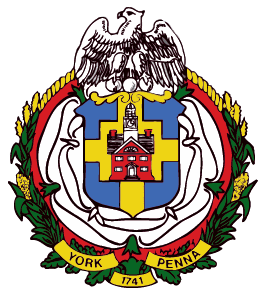The York Rotary Club and York City, along with its partners, have completed the Kiwanis Lake Restoration Project. To celebrate this historic milestone, a ribbon cutting and grand reopening ceremony will take place at 1:30 p.m., on October 6th, at Kiwanis Lake. This iconic lake is one of the most noteworthy and beautiful water features within York City. It has a legacy of memories for many generations, including public events, fishing, and pleasant summer strolls. The lake had become compromised over the years as the environments around it change. It manages more silt and runoff pollution than it ever has before. Mechanical features of the lake, which help regulate water quality, had fallen into disrepair. Invasive land and aquatic wildlife and flora had disrupted the balance of the lake’s delicate ecosystem. Kiwanis Lake could no longer boast the health and aesthetic value that it once did. York City and The Rotary Club of York’s Preserve Planet Earth Committee (PPE) partnered to restore Kiwanis Lake back to its glory. We raised $175,000.00 in direct contributions as well as several in-kind donations from vendors as well.
Our 5 Phase Success Plan
The York City Parks team and York Rotary’s PPE team worked extensively to address the issues affecting Kiwanis Lake within 5 critical areas
Phase 1: Wildlife Management – The population of Canadian Geese both in and around the lake was excessive. The waste they created caused substantial water quality issues in what is a relatively small body of water. They additionally caused health issues as their waste polluted the park areas around the lake where residents and their children prefer to walk and play. This made the park itself nearly unusable for recreational purposes without extensive city intervention to manually remove the debris. A Pennsylvania State contractor provided services to disrupt and, if some cases, physically remove the Geese as humanely as possible. Since 2009, 2,470 geese have been chased away or removed from the lake.
Phase 2: Aeration System – The Lake’s still water allows for upstream sediment and debris to settle permanently in the lake. Previously this issue was addressed by physically draining the lake the dredging the bottom. This process caused a lot of public concern, disrupted wildlife and was costly, as well as time-consuming. An Aeration System was designed and installed to increase the volume of oxygen onto the bed of the lake, which enhances the decomposition of biodegradable material. The aeration system also promotes turbidity in the lake keeping water bound sediment particles suspended so that they can flow through the spillway for years to come.
Phase 3: Flood Gate Repair – The gate that exists along Newberry Street to regulate the lake’s water level had not functioned for several years. Managing the lake’s water level is important during storm surges and wetter seasons to keep the lake from overflowing and damaging infrastructure and properties around the lake, as well as creating a hazard for park pedestrians. All of the gate’s controls and mechanicals were replaced to make this feature operational again.
Phase 4: Replace Lights and Fountains – Part of Kiwanis Lake’s beauty had been its fountains and lights. These features fell into disrepair over the decades, so the old fountains and lighting were replaced with new in-lake fountains and all-new LED lights. This improvement brings back the historical night time aesthetics that were so enjoyed years ago. The fountains also assist with oxygenating the water in the lake and adding to the turbidity of the lake, which helps reduce sediment deposit.
Phase 5: A Smart Lake – Technology was installed to allow the lake to be monitored remotely and measure issues such as lake level, temperature, PH levels, dissolved oxygen, and turbidity. This allows the city and its partners to be proactive with issues before they become unmanageable. This monitoring can be done remotely and has a strong educational component. Local schools and colleges will have access to this information for class projects and learning opportunities. This will not only spread the ownership of the lake’s wellbeing, but it will also keep younger generations invested in how we impact our environment and water quality using real data to make informed decisions.
Here are the community partners we would like to recognize for making this project possible: The Rotary Club of York, the City of York, York City Parks Conservancy, Rotary District Club Foundation, Uptown York Rotary Club, Stewart & Tate, Inc., Trola Industries, Inc. Penn Air, American Hydro Corporation, Hydro Consulting & Maintenance Services, Inc., Powder Mill Foundation, J. William Warehime Foundation, Arthur J. & Lee R. Glatfelter Foundation, First Energy Foundation, and York County Community Foundation.

